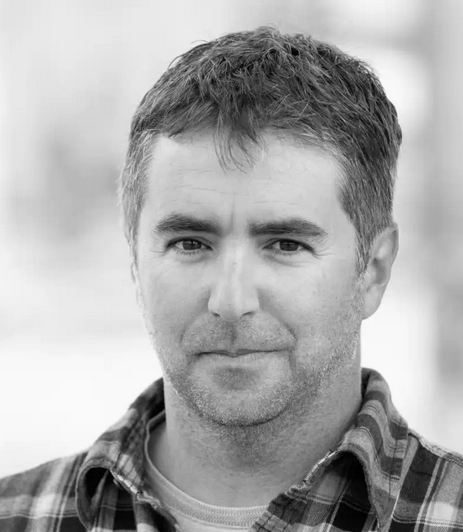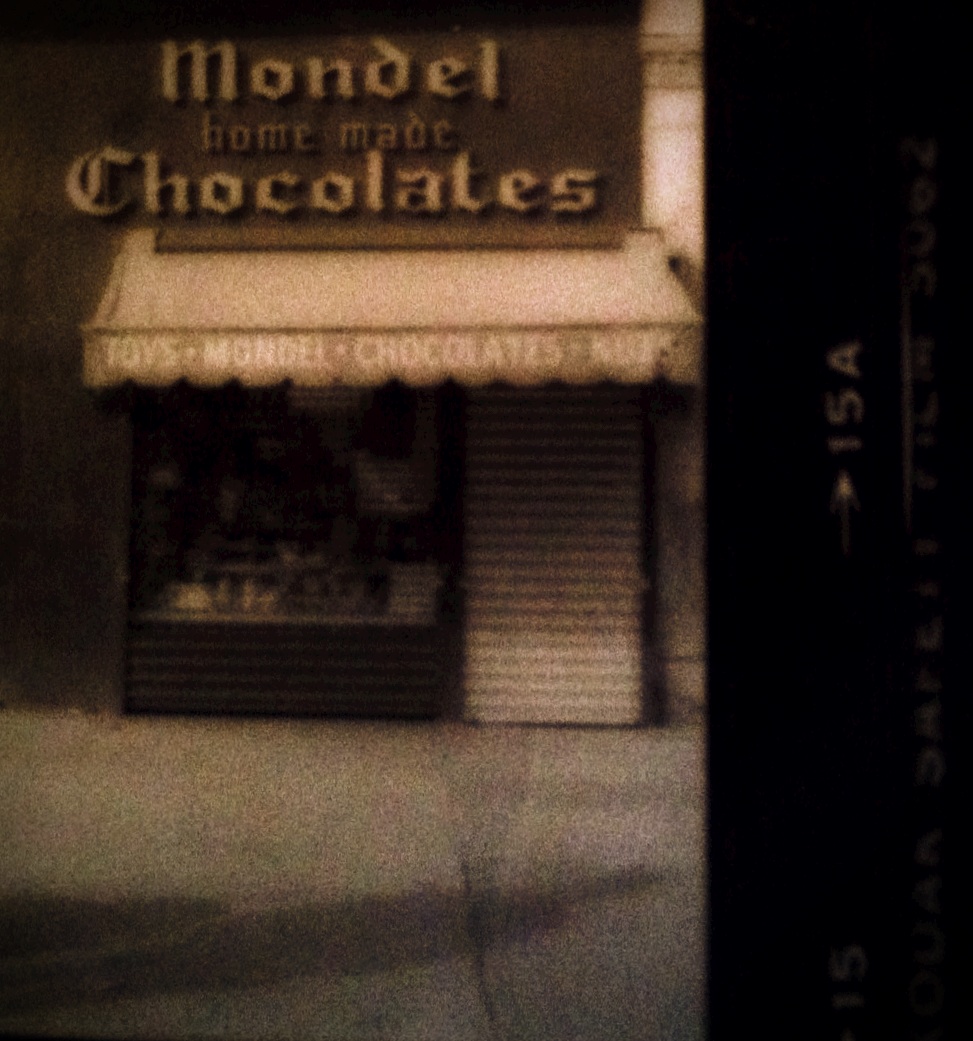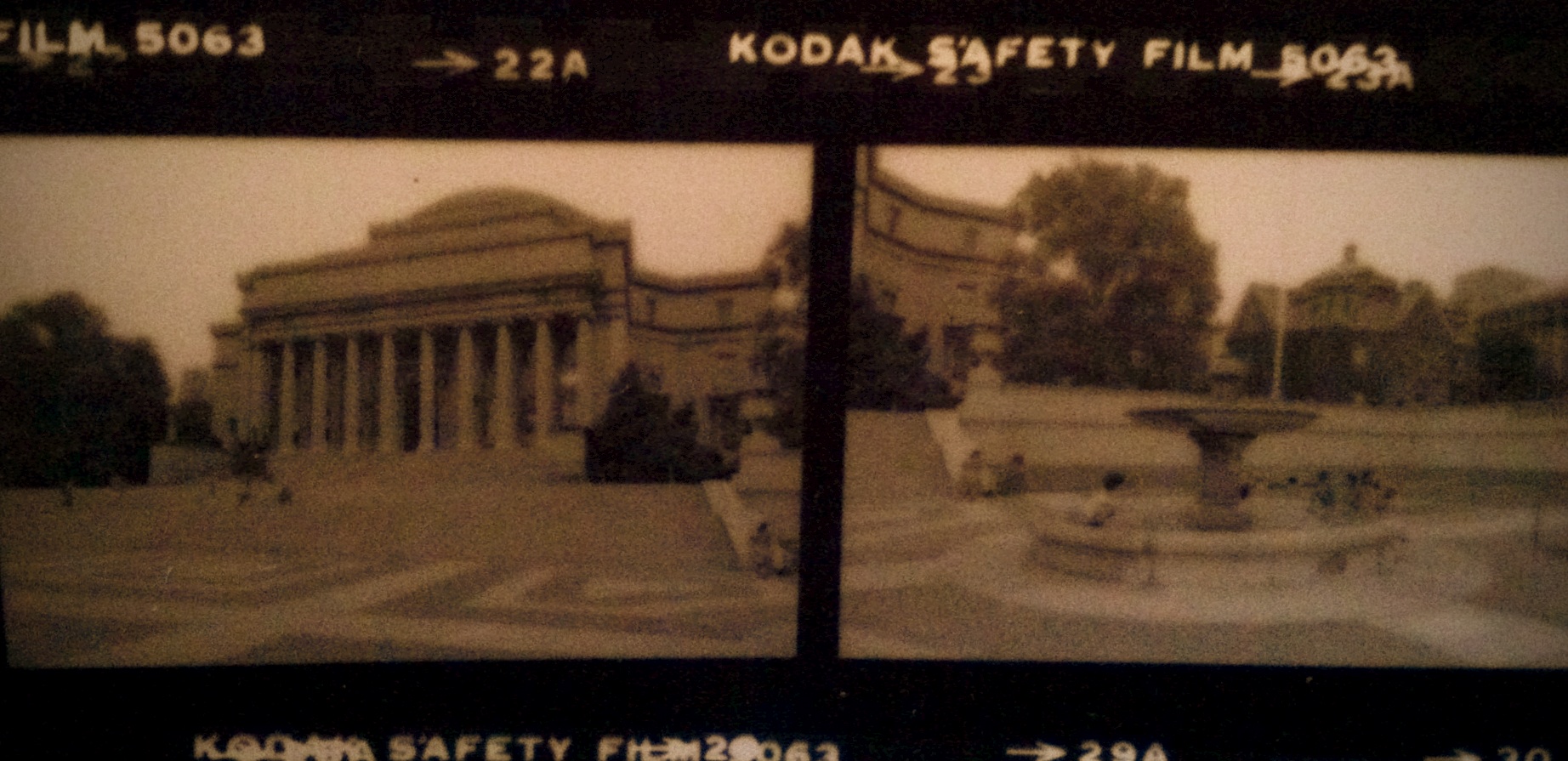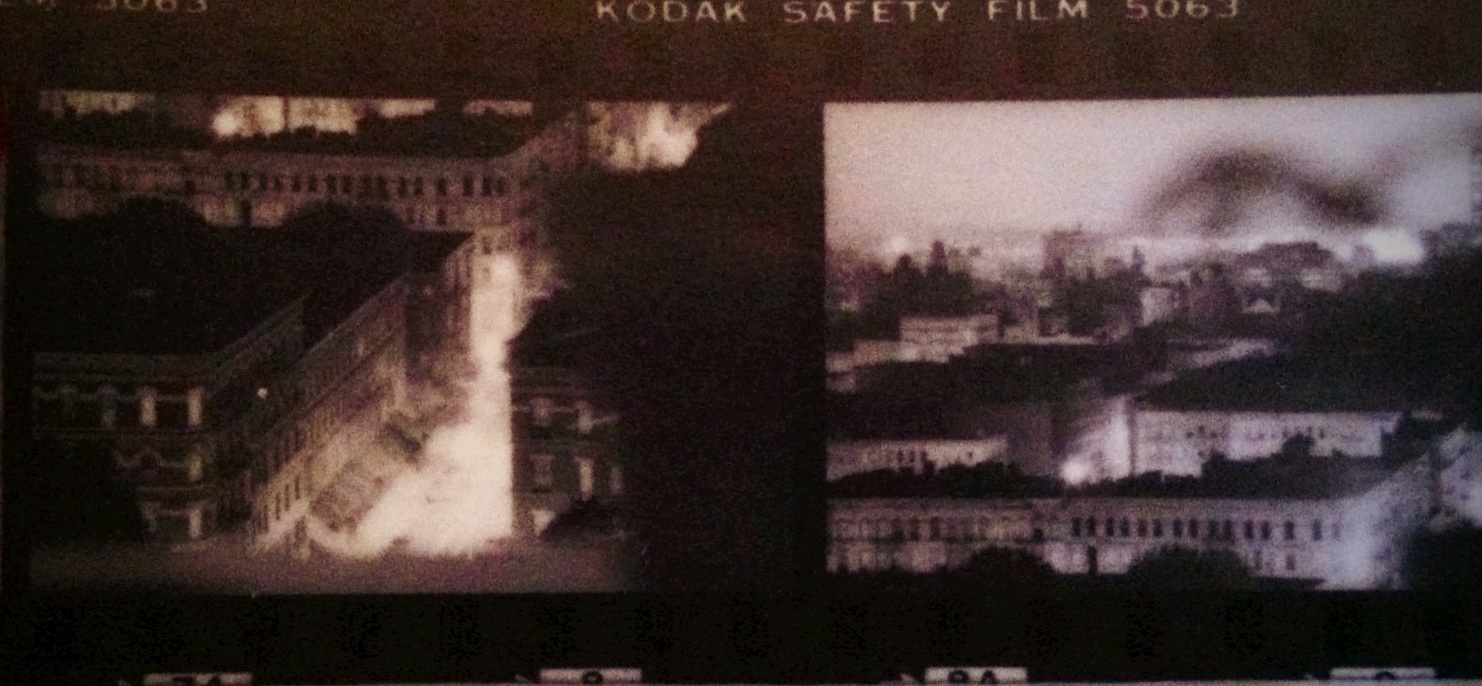 Taiaiake Alfred and his son Kai Aronhiente. In the distant background are his other two sons, Brandon Skanekohrákson and David Tiorhónko
Taiaiake Alfred and his son Kai Aronhiente. In the distant background are his other two sons, Brandon Skanekohrákson and David Tiorhónko
—————-
Taiaiake Alfred is an old friend, a Kahnawake Mohawk from just outside Montreal, a former Marine, a scholar specializing in indigenous governance at the University of Victoria, a fierce and diligent advocate for native rights in Canada. He has published three scholarly books and any number of essays, polemics and columns, but lately he has turned to fiction to explore the world of his birth. It’s a wonderful opportunity and privilege for Numéro Cinq to offer the first preview of his work in progress which he calls “true” and a lament and which is sad and powerful and, yes, a keen for a lost land.
Some context: the simmering confrontation between natives and the Canadian government in Ottawa has recently boiled up again driven by a passionate hunger-striking native chief, Theresa Spence, and the Idle No More movement. One of the texts being handed out by native activists is a pamphlet written by Taiaiake and Tobold Rollo.
dg
——
Some words on the whole book: It’s the story of a Mohawk man who struggles to stay Onkwehonwe (indigenous) even as his life and the culture of his community changes radically from his childhood growing up on the riverside, seeing that way of life destroyed by the St Lawrence Seaway and pollution of the river, to living in NYC as an ironworker, and the rise of the cigarette trade. Basically, if a lit scholar looked at it he’d probably see a fictionalized oral history of the Mohawk community in Kahnawake and Akwesasne, a meditation on our broken relation to the natural world, and not to sound too academic, an exploration of Indigenous masculinity and sexuality. I create the story, but I am committed to the book being “true” in the sense that everything in it actually happened and exists as my memories or other people’s stories or as traditional stories or legends – all interwoven. I see it as a remembrance or kind of lament, not for a way of life that doesn’t exist but for a collective spirit or soul that has been broken or corrupted – in parts I even attempt the second-person, though I may be pushing my luck with that!
—Taiaiake
§
I am standing on the shore looking out across the slate gray river at the mountain, my eyes tracing a path to St. Joseph’s oratory on Kawennote Tiohti:ake. An image from many years ago comes to me, that of Mohawk women walking across the black bridge to the city. They are walking across the freezing river to go sell their woven ash baskets and beadwork in Lachine or at the Bonsecours Market or in the Champs des Mars. So many of them had gone over and not come back because the winds in the middle of the river were strong and the steel frosted and slippery under their feet and they’d fallen onto the ice or into the water with their burdens on their backs. Every day is such a challenge when you’re living close to the land and the water. The river would take them and they wouldn’t have lasted more than a minute struggling against the weight of the packs on their backs and their heavy clothes and being pulled by the force of the current. They would be stunned by the cold of the ice studded water and then they would be gone under, joining the flow of the river and of time. Their bodies would be churned by the rapids and the rocks and they would be sent downstream to join with the sea and our memory. This ancestral pathway is the one I took myself as a young man on another cold December morning, and they still remember the day I crossed over from the other side but made my way back to the people again.
I was standing on the shore and I heard the sound of my name. I turned and to look over my shoulder through the skeletal winter bushes, towards the voice. I knew what was there but I was hoping I was wrong. Up on the road Raté was yelling at me and Jen was laughing. They want me to finish my business and get back in the van. I don’t want to leave the shore of the river, but I’m getting really cold standing there in the winter wind in just jeans and a t-shirt. The morning light is shining too bright for my hung over eye balls. So I break from the river and run up the gravel road, tripping on little stones frozen to the ground and jumping over slicks of black ice along the way. I hear my friends and their raunchy laughter above the blaring Back in Black. Standing on the road next to the van, if you hadn’t been there before you’d never be able to tell that the river was right there flowing by on the other side of the brown-fruit sumacs and thin, drooping, saplings of poplar.
Rateninos leaned out of the driver’s side window and said to me, “It’s about time, Cousin. What the hell were you doing over there for so long? You shake that little thing more than once and you’re playing with it!”
“It took me a while to find it, Raté, ‘cause it was hanging way down in my boot again,” I shot back, and we all laughed as I pulled the side door of the van open and climbed in the back where Jen was waiting for me.
I lay back on the bench seat and stretched my legs out. I closed my eyes and right away I was back on the bank. Then I felt Jen moving towards me. She draped her arms around my neck, pulled herself up closer and lifted her leg over mine until the soft inside of her thigh was resting on my lap just perfect. I still had my eyes closed but I knew she was smiling as her hands went under my shirt and she felt my stomach and chest and moved them around to my lower back and then down below my belt. She nuzzled her face into my neck and breathed in deeply and then looked up at me and with her eyes locked on mine she placed small, delicate kisses on my neck, on my mouth, and all over my face. When I felt the sweet sting of her bite on my ear, I breathed in sharply too and held it inside of me like the air perfumed with her scent was a gift, and only let it go when I had to part with it. I felt us together and noticed that we were driving now along the long, straight, gravel road back towards town. The world beyond the riverside just disappeared as I fell asleep with a picture of the river’s flowing water in my mind and the perfect sensation of that young girl’s warm breath and soft knowing hands on the skin under my clothes.
And then all the beauty vanished and I was tumbling down an ugly vortex of noise and pain. My ears were assaulted by ugly sounds of warping steel and snapping plastic, metal on metal scraped, shattered glass, high-pitched screams above and otherworldly groans below. I was upside down and weightless and it was all happening in slow motion, the time lag between what I was experiencing and the thought of it running through my mind making it all the more intense, like it was all happening to me doubly. Then suddenly everything was in real time and I was launched through the air by a huge and irresistible force and I felt the crushing pain of my face being smashed into a solid mass.
Darkness. Laying face down on the floor of the van, I wasn’t in the waking world. How real the sensation of being full of water seemed. Water bathed my eyes, water filled my ears, water rushing down my throat, water in my belly. I was outside of my body watching myself gag on water and I saw it gurgle out from my nose. I coughed up pieces of seaweed and tasted mud. I thought, weirdly, it’s not even unpleasant, it tastes like the river smells. I love that smell – cold fresh water, silky black mud, crawfish, cottonwood tree bark, rotting wood, seed pods, yellow perch, ice. Animal, plant, and fish life and the cold air comingling with moving water and old, old, rocks. This is the taste of the natural world, home, of my life. I dreamed about the river all the time, swimming across it, flying above it, standing in it feeling its swell as it rushed between my legs. But I could not remember ever feeling as if the whole expanse of the river was rushing into me.
I could not stop it. I was becoming the river.
Driving back toward the Saint Catherine locks a couple of miles to the east, where we knew we could cross over the dyke, Rateninos had passed out and we drove off the road at forty miles an hour. We went straight off the twenty-foot dyke and into the water, the van flipping over headlong and doing a barrel-roll in the air before landing right side up on its wheels. The thin December ice held the weight of the van just long enough for Raté and Jen to climb out of the shattered front door windows. They were standing outside of the van screaming and crying because I was still inside when the ice cracked and the van sunk up to its axels and started to take on water.
It was the taste of the river that pulled me back to a waking state and the realization that I was kneeling on a wet carpet floor and then two seconds later the carpet floor was that of a van floating in the water. By the time my mind had cleared from being smashed against the windshield at forty miles an hour the ice had given way and the van was bobbing in the water like a diving submarine with its sail still barely above the surface. I wish I could say that I recognized my predicament and that I acted with grim determination in the face of grave danger, that I knew it was do-or-die time and I took the action that needed to be done in the moment. But that’s not really the way it happened. I wasn’t even fully present in that moment and I can only tell the story because the flash of images, whiffs of smells and tastes and skin sensations of temperature and of bone pain have come back to me over many years of nightmares and willed remembering.
Two small tsunamis rushed through the van’s busted out side windows and seeing that worked up something inside of me. I became fully lucid and recovered my physical being again. Whatever animal, spirit or chemical it was that animates me took over completely. The power came on so strong that my arms and legs started shaking fiercely. I became a beast, screaming and battering the windshield with my bare fists. I felt the weight of a ton of dirty slush hitting me in the face as the windshield caved in from the pounding and the water pressure bearing down on the cracks in the glass. The river came on even stronger and poured into the vehicle. I started to kick wildly and scramble and squeeze my head and then the rest of my body through the broken windshield, desperately pushing and finally getting my body halfway out of the water, breathing in what air I could while trying to keep my hold on the surface ice. But I could not free myself from the sinking van because my jeans had snagged on glass shards that were sticking out from the frame of the broken windshield, and I lay there with my chest and arms and head on the ice for a tortuous minute, not able to free myself from the teeth of the heavy black hulk lurking just below the surface of the water.
The van filled up with water quickly and then it sank, dropping fast and I was drawn down with it, my dug in fingernails dragging across the ice as I dug in and tried desperately to halt my cold descent. The van sunk and I took the deepest breath I could manage before my neck, chin, mouth, nose, and eyes slipped below the surface and I was gone into the blackness.
Under water, I was able to move more freely, and with the strength of desperation I kicked myself out and away from the van as it was coming to rest at the bottom of the Seaway. I started swimming in the direction I figured was up, almost out of air, reaching out, pulling and with each stroke hoping to break the surface but being so disoriented in the utter blackness that I did not know if instead of heading up I was pushing myself further down towards the bottom and the last breath of my life.
I was still deep under water when I could not hold my breath any more. I thought I was dead, that my days on this earth had been all used up. I was just about dead and there was no light at the end of any tunnel, no ghosts walking around in the distance, no kindly father figure, no buckskinned ancestors, no Jesus, no life highlights flashing before my eyes, nothing but darkness and endless solitude. So this is how it feels to be a breath away from dying? It wasn’t what I expected. But it wasn’t painful and it wasn`t fearsome, so when my lungs felt like they were going to burst I just stilled myself. I stopped moving.
Floating with my arms above my head and my hands held open, resigned, peaceful, thoughts started coming into my head again. I don’t want to waste my life like this. I don’t want to do this to my family. I miss my grandmas. I’m hungry for cornbread and steak. I want to taste Jen and feel her belly pressed up against mine one more time. I felt anger rising. What a stupid way to die. Then I heard music. Maybe it was the song that was playing on the radio just before we crashed. The melody and the singer’s voice were clear and ringing in my head as I floated there in the murk. It was that song, Don’t Pay the Ferry Man. “I hate that song,” I said to myself, “There’s no goddamn way this is the soundtrack to my death, I’m not going out to a song about a fairy man!” And then I got pissed off too because my death was going to be cliché, a really unfunny parody of the glorious demise I’d fantasized about so many times, like taking a bullet in the chest on a battlefield. No white skeleton was going to lead this lost soul out of the water to the other side, Chris de goddamn Burgh. No way I was gonna pay that toll, fucking Frenchman. I was going over to the other side like everybody else sometime, but not this morning, not here, and not like this.
Just then I felt ice as first my hands and then my face bumped up against what felt like a rough slab of wet concrete. I’d risen to the surface and was looking up through grey water and I could see the feint overcast light of the new day through the nearly opaque frozen mass. The ice was thick, solid, and unbroken. I had come to the surface again but at a different place then at the hole I’d gone down through.
A scene from an old movie I’d seen about Harry Houdini, the famous magician, flashed in my mind. A trick had gone wrong and he was trapped in chains in some kind of iron lockbox filled with water, and he had survived by pressing his lips right up against the top of the box, breathing from the thin layer of air between the roof of the container and the surface of the water. That is what it was like for me in the Seaway; there were a couple of inches of space, a thin layer of life, between the surface of the water and the bottom of the ice. I was a Mohawk Houdini pressing my face up against the bottom of the ice and when the shifting swell of the water created a little gap, I grabbed air, which would be enough for some more life. I did that a few times, and I was able to crawl upside down along the underside of the ice until I felt my right hand push up and through to the feeling of cold morning.
I pulled myself out of the hole, laid my chest on the ice, and breathed, not quite sure if I was dead or alive. I saw the shore not too far away so I lowered myself back into the water and kicked and crawled and swam my way across the shattered ice and slushy water towards the shore, where I climbed out of the water and onto a piece of jagged shale where I sat down and started shivering fiercely.
—Taiaiake
—————————
Taiaiake is a Kahnawake Mohawk writer and professor of Indigenous governance, knowledge and history. He was born at Tiohtiake, Montreal, was educated by Jesuits, and served as a U.S. Marine Corps infantryman in the 1980s. He later studied history at Concordia University and earned a doctorate in political science at Cornell University. He’s now a Professor of Indigenous Governance at the University of Victoria and divides his time between Kahnawake and the territory of the Wsanec Nation on Vancouver Island, where he lives with his wife and three sons.
Taiaiake’s writings include three scholarly books and many research and policy documents produced for Indigenous organizations, five years as the leading opinion columnist in Canada’s national Aboriginal newspaper Windspeaker, and essays and humour published in numerous journals including Maisonneuve. He has recently shifted away from scholarly research and essays and has begun working on a book of stories/memoir of life in the Mohawk community of Kahnawake (from which this excerpt is drawn), as well as a work of creative nonfiction on Indigenous masculinity and hunting.






































